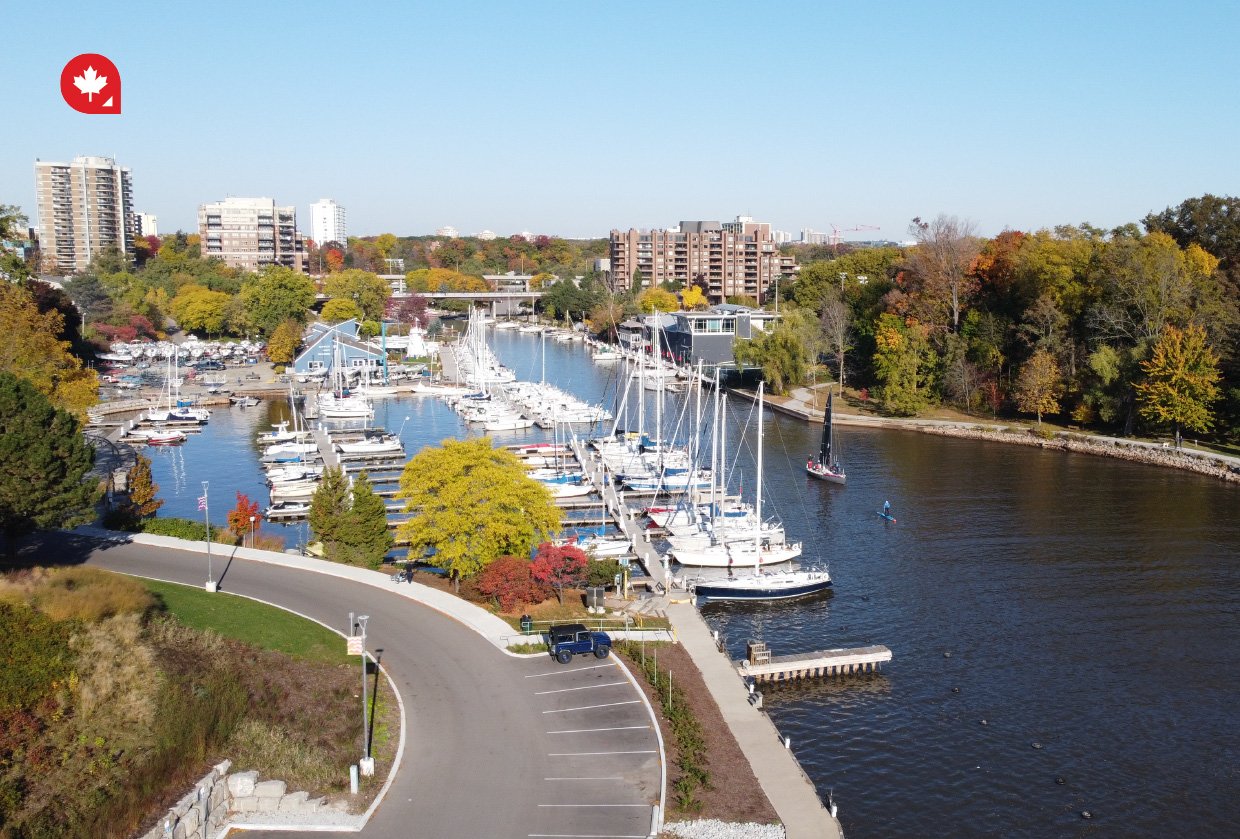New Zealand and Canada are two of the most popular destinations for immigrants worldwide. Both countries have a high standard of living, excellent education and healthcare systems, and a welcoming attitude toward immigrants. However, there are notable differences in their immigration policies and eligibility criteria.
Different countries have varying immigration policies that may suit your specific needs. For instance, some countries have strict immigration policies that require a lot of documentation and have long waiting periods. Others may have lenient policies that make it easier to immigrate, but the downside is that the country may have fewer job opportunities.
Both countries have unique advantages and disadvantages, making it crucial to consider several factors before deciding. This blog article will compare New Zealand vs Canadian Immigration System to help you decide which is better.
The New Zealand Immigration System

The New Zealand immigration system is designed to attract skilled workers who can contribute to the country’s economy. Each immigration program has its own set of eligibility requirements. However, these are the general trends for people selected for New Zealand’s immigration programs.
To be eligible to immigrate to New Zealand, applicants must meet the following criteria:
| Category | Eligibility Criteria |
|---|---|
| Age | Applicants should be below 55. |
| Health and Character | Applicants must meet the health and character requirements set by the New Zealand government. |
| English Language Proficiency | Applicants must demonstrate their ability to communicate effectively in English. |
| Skilled Employment | Applicants should have a job offer from a New Zealand employer or be highly skilled in a field that is in demand in New Zealand. |
| Qualifications | Applicants must have relevant qualifications in their field of work. |
The Canadian Immigration System
The Canadian immigration system is one of the most diverse immigration systems globally, with various immigration pathways available for immigrants. However, for those looking to immigrate to Canada permanently, these are the two most popular immigration pathways.
These systems are based on a points system, with applicants earning points based on age, education, language proficiency, and work experience.
To be eligible for these major immigration pathways, applicants must meet the following criteria:
| Category | Eligibility Criteria |
|---|---|
| Age | Applicants should be below 47 years old. |
| Health and Character | Applicants must meet the health and character requirements set by the Canadian government. |
| English Language Proficiency | Applicants must demonstrate their ability to communicate effectively in English or French. |
| Skilled Employment | Applicants must have a job offer from a Canadian employer or be highly skilled in a field that is in demand in Canada. |
| Qualifications | Applicants must have relevant qualifications in their field of work. |
How do They Compare?
The immigration policies and eligibility criteria of New Zealand and Canada differ in several ways. These policies do not encompass Canada and New Zealand eligibility criteria. Instead, this refers to the unifying factors between the vast majority of permanent residency recipients for both countries.
Age Requirements
New Zealand’s immigration programs generally have a lower age requirement of 55 years compared to Canada, which prefers applicants under 47. This means that older applicants may find it easier to immigrate to New Zealand.
Language Requirements
New Zealand and Canada require applicants to demonstrate their language proficiency in either English. Canada also allows applicants to demonstrate their proficiency in French if they primarily speak French. However, New Zealand tends to have lower language requirements than Canada.
Both countries accept the International English Language Testing System (IELTS) to test English language proficiency.
To ensure you have the best chance of being accepted into your chosen immigration program, look at this top-of-the-line IELTS course.
Skilled Employment
Most immigration programs from both countries require applicants to have a job offer from a local employer or be highly skilled in a field in demand.
Canada has more job opportunities than New Zealand. To help you get started, here’s our guide to finding a job in Canada.
Visa Categories and Requirements

New Zealand and Canada have various visa categories available to immigrants, each with specific requirements.
New Zealand Visa Categories
The following are the most common visa categories for immigrants to New Zealand:
Skilled Migrant Category (SMC)
This visa category is for highly skilled workers who can contribute to the New Zealand economy.
Essential Skills Work Visa
This visa category is for workers with a job offer from a New Zealand employer.
Entrepreneur Work Visa
This visa category is for entrepreneurs wanting to start a New Zealand business.
Investor Visa
This visa category is for investors who want to invest in New Zealand.
Canadian Visa Categories
The following are the most common visa categories for immigrants to Canada:
Express Entry
The Express Entry system is for highly skilled workers who want to immigrate to Canada. It’s split into the Federal Skilled Worker Program for skilled professionals, the Federal Skilled Trades Program for skilled tradespeople and the Canadian Experience Class for skilled workers who have been living and working in Canada for at least a year.
Find out more about the Express Entry System and how to apply here.
Provincial Nominee Program (PNP)
This visa category is for applicants who have a job offer from a Canadian employer and meet the eligibility criteria set by the province where they will reside.
Here’s a guide to Canada’s PNPs to help you determine your eligible ones.
Family Sponsorship
This visa category is for Canadian citizens or permanent residents who want to sponsor their family members to immigrate to Canada. Here’s a full breakdown of Canada’s Family Sponsorship Programs and how to apply.
Regardless of your destination, having all the necessary documentation and meeting the eligibility criteria is essential to ensure a smooth immigration process. So, weigh your options carefully and choose wisely. The best way to do this is to get a complete evaluation from a certified immigration expert to see if you qualify for permanent residency in Canada.
The Application Process for Canada vs New Zealand

The application process for immigrating to New Zealand and Canada differs.
Processing Time and Application Fees
Regarding immigration, the processing time and application fees are crucial factors. If you plan to relocate to a new country, you must be aware of the differences between Canadian immigration and New Zealand immigration.
While New Zealand’s processing time is typically faster than Canada’s, Canada’s application fees are higher than New Zealand’s.
Therefore, if you are looking for a quicker process, New Zealand may be the better choice, but if you are willing to pay a higher fee for better opportunities, Canada may be the way to go.
To give you an idea, here’s a breakdown of Canada’s immigration processing fees and the Canadian immigration processing times.
Pros and Cons of the New Zealand Immigration System
| Pros: | Cons: |
|---|---|
| Lower age requirement than Canada | Fewer job opportunities than in Canada |
| Lower language requirements than Canada | Lower salaries than Canada |
| Faster processing times | Higher cost of living compared to some countries |
| High standard of living |
Pros and Cons of the Canadian Immigration System
| Pros: | Cons: |
|---|---|
| A broader range of job opportunities | Generally higher age requirement than in New Zealand |
| Higher salaries compared to New Zealand | Higher language requirements than New Zealand |
| Lower cost of living compared to some countries | Longer processing times than New Zealand |
| Excellent education and healthcare systems |
FAQs

What Factors Should You Consider When Choosing Where to Immigrate?
Before deciding where to immigrate, you must consider several factors, such as:
Cost of Living
The cost of living varies depending on the destination country. Some countries have a high cost of living, which may make it difficult to settle in, while others may have a lower cost of living, making it easier to save on expenses. For example, the cost of living in New Zealand is generally higher than in Canada, and job opportunities are limited compared to Canada. To help give you the whole picture, here’s a breakdown of the cost of living in Canada.
Job Opportunities
Immigrating to a new country without job opportunities can be challenging. Therefore, you must consider the destination country’s job market and employment opportunities before deciding. The cost of living and job opportunities in New Zealand and Canada differ. Canada has a broader range of job opportunities, higher salaries, and a lower cost of living.
This map shows the top in-demand occupations in Canada’s provinces.
Education and Healthcare Systems
A country’s education and healthcare systems are critical factors when deciding where to immigrate. In addition, you must consider the quality of education and healthcare services in the destination country to ensure you and your family receive the best care. Learn more about Canada’s healthcare system here.
What Challenges do Immigrants Face in New Zealand and Canada?
Immigrants to New Zealand and Canada may face various challenges, such as cultural differences, language barriers, and difficulty finding employment. Therefore, it’s essential to research and understands the challenges before deciding which country to immigrate to.
Which Immigration System is Better for You?

New Zealand and Canada are excellent destinations for immigrants worldwide. However, both countries have unique advantages and disadvantages, making it essential to consider several factors before deciding. It’s recommended to seek professional guidance to make an informed decision that aligns with your needs and goals.




